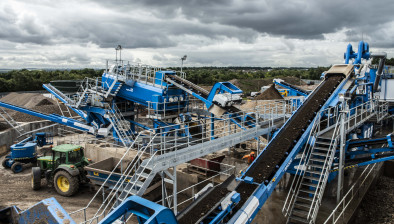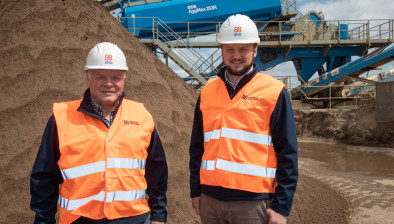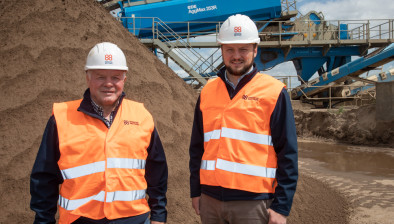Brewster Brothers plans to double recycling capability as new plant opens near Cumbernauld
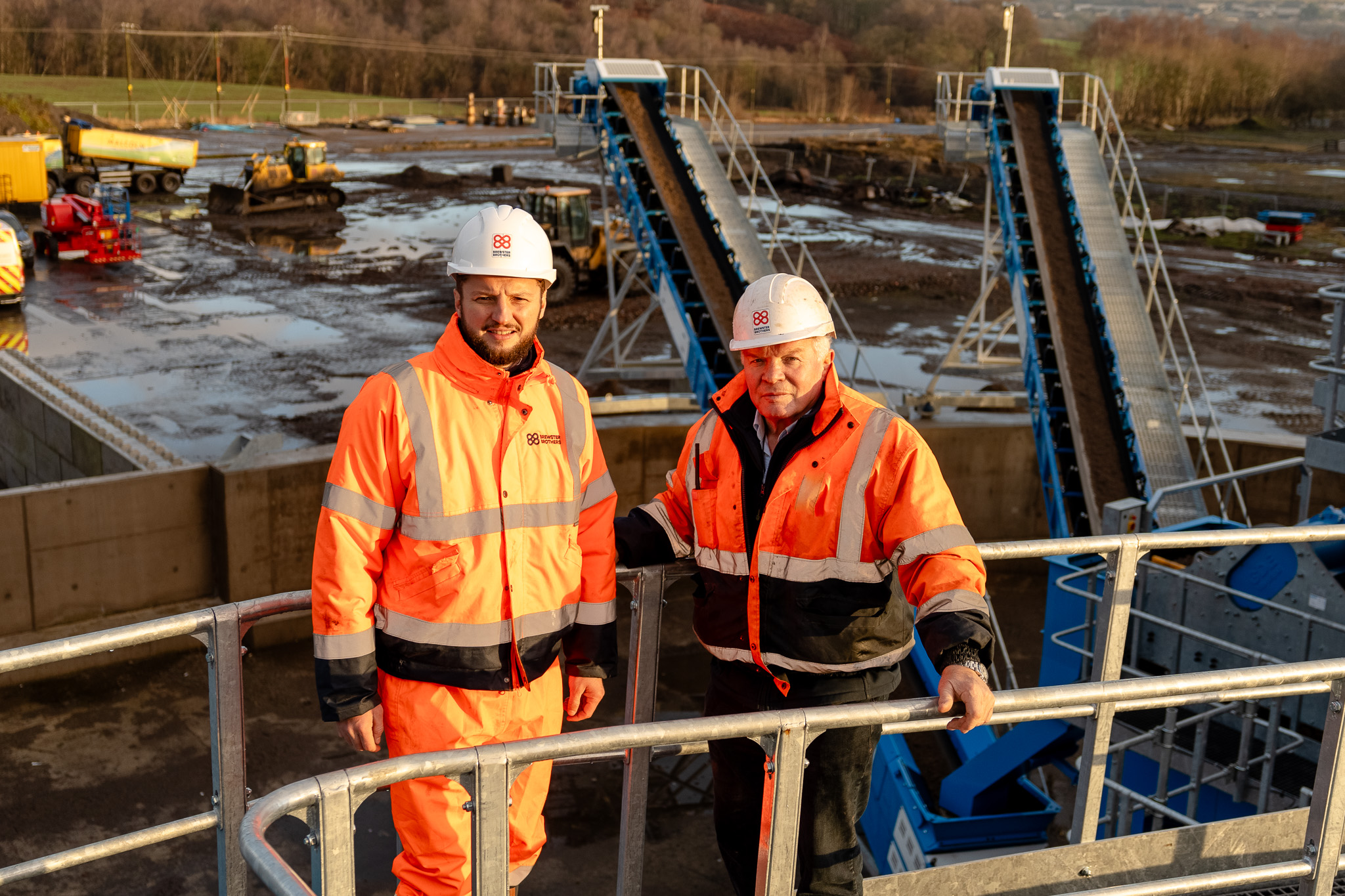
Scott Brewster and his father Alex Brewster at the new Gartshore site
A company that’s already recycled more than a million tonnes of construction waste from landfill has opened a second plant.
Brewster Brothers’ wash plants transform 100% of the excavated soils and rubble they process from the construction industry into high-value aggregates for reuse.
Over the past six years at its first site near Livingston, Brewster Brothers has prevented almost 1.35 million tonnes of construction, demolition and excavation (CDE) waste going to landfill. In the process, the firm has created more than 1 million tonnes of recycled aggregates to sell into the industry, helping to create a truly circular micro-economy.
Now, as part of a £7 million expansion of the business, Brewster Brothers has fully opened its second recycling site, regenerating the old Gartshore Works near Cumbernauld. The new state-of-the-art wash plant is capable of recycling a further 300,000 tonnes of CDE waste per year for reuse in the building trade.
The new plant will serve construction sites, housing and utilities developments in the Western Central Belt, and will therefore also reduce the carbon impact of the transport required to get waste and recycled aggregates to and from those developments, especially when efforts are made to ensure every lorry trip is loaded with either waste or product. The firm’s first plant near Livingston, which currently employs 39 people, will continue to provide sustainable waste management services and high-performance recycled aggregates to businesses in Edinburgh, Fife and the Lothians.
The expansion of Brewster Brothers reflects the growing recognition within the construction industry of the need to adopt more circular business models. The industry generates 50% of Scotland’s waste, 40% of Scotland’s carbon emissions and is responsible for 50% of Scotland’s natural resource consumption.
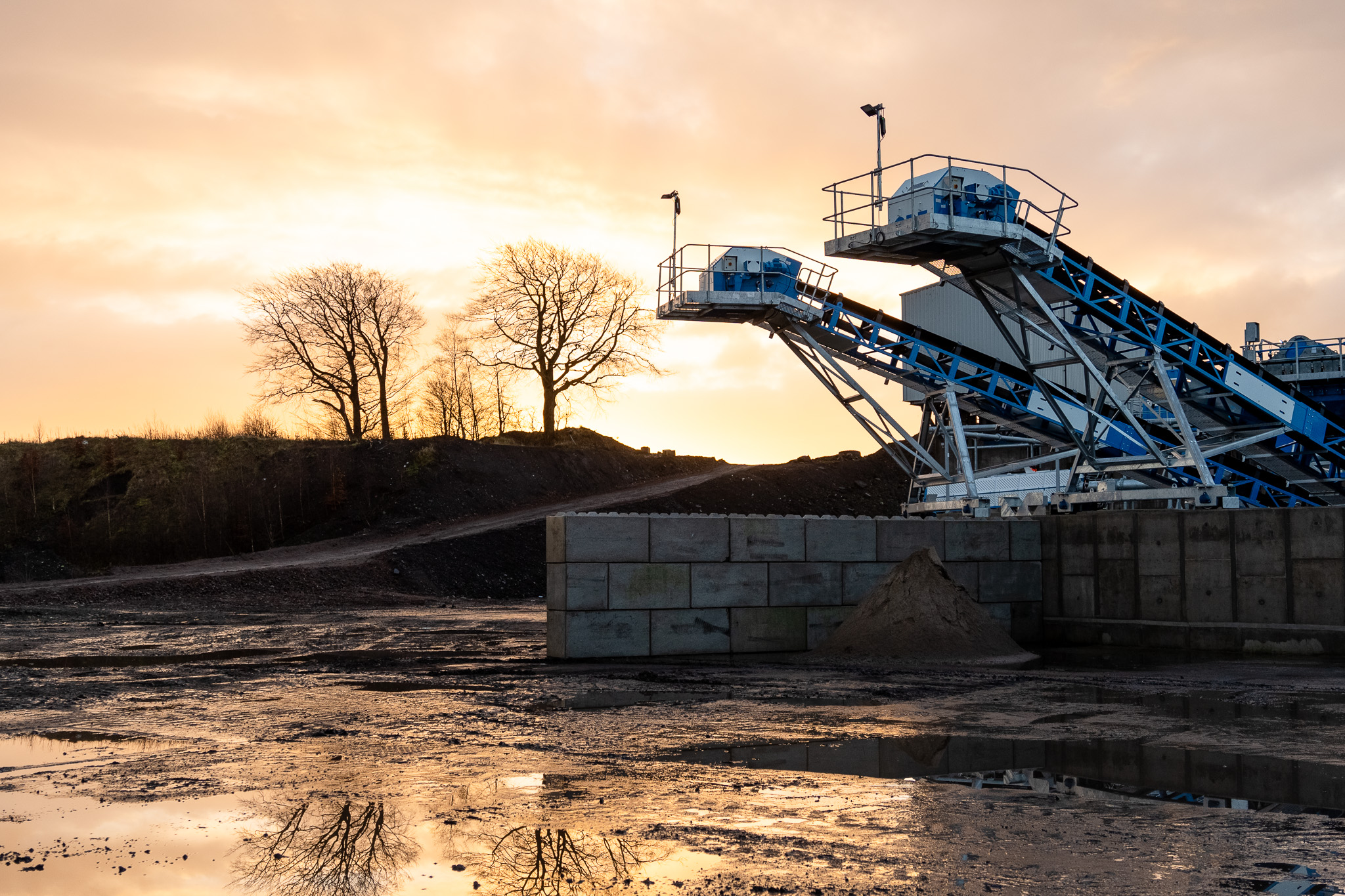
Brewster Brothers recently won the VIBES Scotland Circular Scotland award. The organisers describe the category as recognising “businesses that can demonstrate a strong commitment to implementing the principles of a circular economy. Ensuring materials are retained within productive use, in a high value state, for as long as possible.”
As part of Brewster Brothers’ redevelopment of the derelict Gartshore Works near Cumbernauld, the firm has recruited new members of staff supported by Scottish Enterprise’s Green Jobs Fund. The firm will also recycle the old bing of colliery waste on the site, and the area will be turned into a country park for the local community, helping to promote biodiversity as well as provide new recreational space.
Scott Brewster, managing director of Brewster Brothers, set up the sustainable resource management business in 2017 alongside his father, Alex Brewster.
He said: “It’s increasingly clear that the construction sector in Scotland appreciates the need to reduce the amount of natural resources that the industry uses and the amount of carbon it emits while increasing use of recycled and secondary materials. The volume of construction, demolition and excavation waste that’s been recycled over the last six years has grown enormously, and our investment into this second site demonstrates that there’s room for a further expansion in this area.
“Following the opening of our new plant near Cumbernauld, we will be able to service 44% of Scottish construction projects, while keeping the carbon footprint of our own operations to a minimum. We are a business dedicated to sustainable resource management, and want to work in partnership with contractors to help them reach their sustainability goals.
“Scotland has big ambitions for transitioning to a circular economy, and the government plans to bring in a new devolved aggregates tax that should accelerate the shift away from the use of virgin products. Brewster Brothers’ intent is to bring an innovative and pragmatic approach to working with a sector that is one of the country’s biggest generators of waste to improve environmental practice and raise awareness of the sustainable options available.”


















